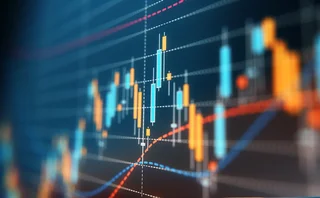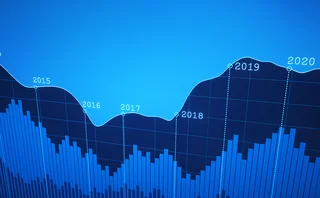
Economist and psychologist share Nobel Prize for Economics
Daniel Kahneman, a psychologist at Princeton University, and Vernon Smith, an economist at George Mason University in Virginia, will share this year’s Nobel Prize for Economics. Both have done pioneering research into how real-world risk preferences produce outcomes not predicted by traditional financial theory.
Kahneman’s early work was fundamental to the development of behavioural finance, which seeks to integrate psychological factors into financial theory. In 1979, he co-developed prospect theory – a way of describing decisions made under uncertainty. His work demonstrated how humans are prone to making decisions using judgements inconsistent with the basic principles of probability. This was a marked departure from classical financial theory, much of which is underpinned by an implicit assumption of the perfect rationality of decisions.
At the vanguard of current research into how the psychology of traders affects their performance is Andrew Lo, director of the financial engineering laboratory at the Massachusetts Institute of Technology. He is currently studying the importance of emotion in the decision-making process of professional securities traders.
Lo, who was speaking at Borsa Italiana’s second annual hedge fund conference in Milan last week, said his study is focused on measuring physiological characteristics such as skin conductance and pulse rate during live trading sessions, while simultaneously capturing real-time prices from which market events can be detected.
He said preliminary results indicate a significant correlation between electro-dermal responses and transient market events, and between changes in cardiovascular variables and market volatility.
Lo also observed differences in these correlations among the different traders that may be systematically related to the traders' levels of experience. “Those traders that show strong emotional responses to the market appear to be more successful. This is in contrast to the stereotyped view of the cool, calm trader,” Lo said.
Nobel prize co-recipient Smith’s best-known research is in experimental economics. He has focused on how alternative markets such as auctions work, and also investigated how irrationality affects the efficiency and dynamics of stock markets. Kahneman and Smith will receive a total award of SKr10 million.
Only users who have a paid subscription or are part of a corporate subscription are able to print or copy content.
To access these options, along with all other subscription benefits, please contact info@risk.net or view our subscription options here: http://subscriptions.risk.net/subscribe
You are currently unable to print this content. Please contact info@risk.net to find out more.
You are currently unable to copy this content. Please contact info@risk.net to find out more.
Copyright Infopro Digital Limited. All rights reserved.
As outlined in our terms and conditions, https://www.infopro-digital.com/terms-and-conditions/subscriptions/ (point 2.4), printing is limited to a single copy.
If you would like to purchase additional rights please email info@risk.net
Copyright Infopro Digital Limited. All rights reserved.
You may share this content using our article tools. As outlined in our terms and conditions, https://www.infopro-digital.com/terms-and-conditions/subscriptions/ (clause 2.4), an Authorised User may only make one copy of the materials for their own personal use. You must also comply with the restrictions in clause 2.5.
If you would like to purchase additional rights please email info@risk.net
More on Economics
Global investment outlook: 2026 and beyond
Broadening, steepening and weakening: Franklin Templeton’s top investment ideas for 2026 and beyond
Webinar – Nowcasting the US economy
Join CME Group Chief Economist, Blu Putnam, as he shares insights using alternative data and nowcasting to monitor developments in the US economy.
Fed Funds Futures in a Post-ZIRP World
As the FOMC returns to more active management of its key target rate, Federal Funds futures have experienced dramatic growth.
Challenging economic pessimism: an optimistic note
A contrarian, upbeat view of the long-term economic outlook
Economists, like hedge fund traders, need open minds
Economists, risk managers and traders must learn the lessons of crisis, says Kaminski
Fed wrong not to start QE tapering, says UBS economist
The surprise decision by the Federal Reserve last month not to scale back its quantitative easing programme will create more volatility, says economist







